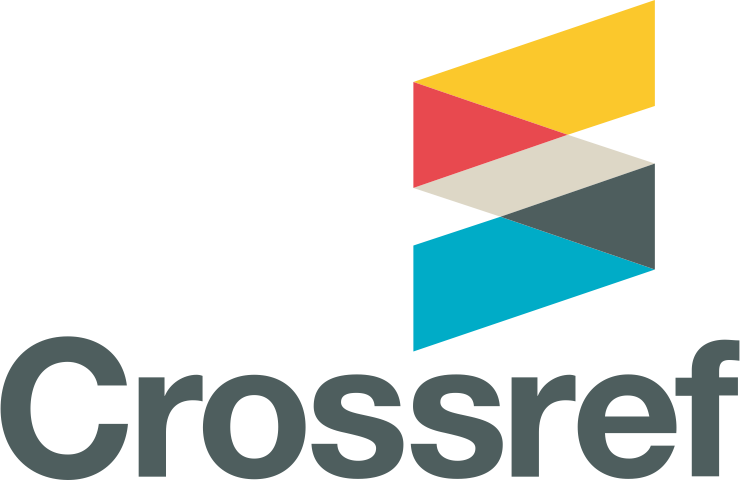Penerapan Metode Long Short-Term Memory dan Word2Vec dalam Analisis Sentimen Ulasan pada Aplikasi Ferizy
DOI:
https://doi.org/10.33633/tc.v22i4.9205Keywords:
Analisis Sentimen, Long Short-Term Memory, Word2VecAbstract
Tranportasi merupakan hal yang penting bagi masyarakat dalam mobilitas sehari-hari. Karena memiliki peranan penting dan dapat memudahkan kehidupan masyarakat, pemerintah mulai mengoptimalkan pembangunan sarana transportasi dan memulai inovasi digital, salah satunya pada moda transportasi laut. Perseroan Terbatas Angkutan Sungai, Danau, dan Penyeberangan Indonesia (PT ASDP) meluncurkan aplikasi Ferizy pada Google Playstore. Dalam inovasi ini, sentimen masyarakat dapat membantu untuk mengetahui kepuasan, kekurangan, saran, dan kritik. Terkait hal tersebut maka diperlukan analisis sentimen untuk memahami maksud ulasan. Analisis ini mengekstrak data ulasan lalu mengolah data tekstual secara otomatis untuk mendapatkan makna sentimen yang terkandung dalam ulasan. Penelitian ini mengimplementasikan klasifikasi Long Short-Term Memory (LSTM) dan ekstraksi fitur Word2Vec variasi skip-gram serta CBOW pada dataset ulasan aplikasi Ferizy. Hasil pengujian dari model menghasilkan nilai akurasi sebesar 88,20% untuk variasi skip-gram dan 74,20% untuk variasi CBOW.References
Ludeman, L. C.. 1987. Fundamental of Digital Signal Processing. Singapore : John Wiley & Sons, Inc.
Faadilah, A. (2020, March 5). Institutional Repository UIN Syarif Hidayatullah Jakarta: Analisis sentimen pada ulasan aplikasi tokopedia di google play store menggunakan metode long short term memory.https://repository.uinjkt.ac.id/dspace/handle/123456789/50432.
E. M. Sipayung, H. Maharani, and I. Zefanya, “Perancangan Sistem Analisis Sentimen Komentar Pelanggan Menggunakan Metode Naive Bayes Classifier,” J. Sist. Inf., vol. 8, no. 1, pp. 958–965, 2016.
Isnain, A.R., Sulistiani, H., Hurohman, B.M., Nurkholis, A. and Styawati, S. (2022). Analisis Perbandingan Algoritma LSTM dan Naive Bayes untuk Analisis Sentimen. JEPIN (Jurnal Edukasi dan Penelitian Informatika), [online] 8(2), pp.299–303.
doi:10.26418/jp.v8i2.54704S.
NUGRAHA, T.I. and Goeirmanto, L. (2022). Perbandingan Metode Deep Learning Dalam Analisa Sentimen Ulasan Aplikasi Jakarta Kini (JAKI). [online] repository.mercubuana.ac.id. Available at: https://repository.mercubuana.ac.id/70536/.
Arinata, B. G. I. (2022, October 10). Analisis Sentimen Pada Edom STMIK Primakara Menggunakan Metode Long Short Term Memory | Arinata | Jurnal Teknologi Informasi dan Komputer. https://jurnal.undhirabali.ac.id/index.php/jutik/article/view/2086T.
Thomas, M., & C.A, L. (2018b). Sentimental analysis using recurrent neural network. International Journal of Engineering &Amp; Technology, 7(2.27), 88.
https://doi.org/10.14419/ijet.v7i2.27.12635.
Dr. G. S. N. Murthy, Shanmukha Rao Allu, Bhargavi Andhavarapu, and Mounika Bagadi, Mounika Belusonti, “Text based Sentiment Analysis using LSTM,” Int. J. Eng. Res., vol. V9, no. 05, May 2020.
Nurrohmat, M. A., A. Sn, 2019, Sentiment Analysis of Novel Review Using Long ShortTerm Memory Method, IJCCS (Indonesian Journal of Computing and Cybernetics Systems, No. 3, Vol. 13, Hal. 209–218.
Evasaria Magdalena Sipayung, Herastia Maharani, & Ivan Zefanya. (2016a). Perancangan Sistem Analisis Sentimen Komentar Pelanggan Menggunakan Metode Naive Bayes Classifier. Jurnal Sistem Informasi Universitas Sriwijaya, 8(1), 131705. https://doi.org/10.36706/jsi.v8i1.3250.
Hermanto, D. T., Setyanto, A., & Luthfi, E. T. (2021). Algoritma LSTM-CNN untuk Binary Klasifikasi dengan Word2vec pada Media Online. Creative Information Technology Journal, 8(1), 64. https://doi.org/10.24076/citec.2021v8i1.264.
Jovita Nurvania. (2021). Analisis Sentimen Pada Ulasan di TripAdvisor Menggunakan Metode Long Short-Term Memory (LSTM). EProceedings of Engineering, 8(4).
Widayat, W. (2021). Analisis Sentimen Movie Review menggunakan Word2Vec dan metode LSTM Deep Learning. JURNAL MEDIA INFORMATIKA BUDIDARMA, 5(3), 1018. https://doi.org/10.30865/mib.v5i3.3111.
Subowo, E. (2022). Algoritma Bidirectional Long Short Term Memory untuk Analisis Sentimen Berbasis Aspek pada Aplikasi Belanja Online dengan Cicilan | JURNAL FASILKOM. ejurnal.umri.ac.id, [online] XII(II). Available at: https://ejurnal.umri.ac.id/index.php/JIK/article/view/3759.
Ailiyya, S. (2020). Analisis sentimen berbasis aspek pada ulasan aplikasi tokopedia menggunakan support vector machine. repository.uinjkt.ac.id, [online] xiv. Available at: https://repository.uinjkt.ac.id/dspace/handle/123456789/51680.
Tryantono, Y. S. (2021). Analisis sentimen terhadap ulasan film menggunakan Word2Vec dan SVM. eProceedings of Engineering, 8(4). https://openlibrarypublications.telkomuniversity.ac.id/index.php/engineering/article/view/15241
Aufa, R. N., Prasetiyowati, S. S., & Sibaroni, Y. (2023). The Effect of Feature Weighting on Sentiment Analysis TikTok Application Using The RNN Classification. Building of Informatics, Technology and Science (BITS), 5(1). https://doi.org/10.47065/bits.v5i1.3597
Putri, P. (2013). Implementasi Metode Improved K-Nearest Neighbor pada Analisis Sentimen Twitter Berbahasa Indonesia. http://repository.ub.ac.id/145872/
Af'idah, D. I., Dairoh, D., Handayani, S. F., Pratiwi, R. W., & Sari, S. I. (2022). Sentimen Ulasan Destinasi Wisata pulau Bali Menggunakan bidirectional long short term memory. MATRIK : Jurnal Manajemen, Teknik Informatika dan Rekayasa Komputer, 21(3), 607-618. https://doi.org/10.30812/matrik.v21i3.1402.
Alghifari, D. R. (2022, September 24). Implementasi Bidirectional LSTM untuk Analisis Sentimen Terhadap Layanan Grab Indonesia | Jurnal Manajemen Informatika (JAMIKA). https://ojs.unikom.ac.id/index.php/jamika/article/view/7764
Downloads
Published
Issue
Section
License
License Terms
All articles published in Techno.COM Journal are licensed under the Creative Commons Attribution-NonCommercial 4.0 International (CC BY-NC 4.0). This means:
1. Attribution
Readers and users are free to:
-
Share – Copy and redistribute the material in any medium or format.
-
Adapt – Remix, transform, and build upon the material.
As long as proper credit is given to the original work by citing the author(s) and the journal.
2. Non-Commercial Use
-
The material cannot be used for commercial purposes.
-
Commercial use includes selling the content, using it in commercial advertising, or integrating it into products/services for profit.
3. Rights of Authors
-
Authors retain copyright and grant Techno.COM Journal the right to publish the article.
-
Authors can distribute their work (e.g., in institutional repositories or personal websites) with proper acknowledgment of the journal.
4. No Additional Restrictions
-
The journal cannot apply legal terms or technological measures that restrict others from using the material in ways allowed by the license.
5. Disclaimer
-
The journal is not responsible for how the published content is used by third parties.
-
The opinions expressed in the articles are solely those of the authors.
For more details, visit the Creative Commons License Page:
? https://creativecommons.org/licenses/by-nc/4.0/
















